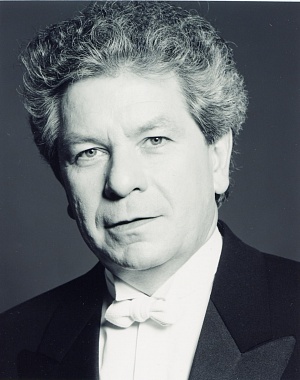
JIŘÍ BĚLOHLÁVEK
GLOBALLY RENOWNED CONDUCTOR HAS PASSED AWAY


On 31 May, Jiří Bělohlávek (24. 2. 1946 – 31. 5. 2017), the most acclaimed contemporary Czech conductor, died at the age of 71, following a long illness. His departure has marked an end to one of the major chapters of Czech and global musical culture. Owing to his blending extraordinary musicianship, diligence and attention to detail, he has left behind an immense legacy, whose significance has far transcended the borders of his homeland. He worked with the world’s most prominent orchestras, made numerous recordings and, as an educator, he nurtured a whole generation of young Czech conductors. As Jiří Bělohlávek himself confessed, music was the sense and joy of his life. His achievements were even praised by the British Queen Elizabeth II, who five years ago awarded him the Order of the British Empire for services to music. Jiří Bělohlávek remained active until the very end of his life. Pursuing many plans, fate prevented some of his musical dreams from coming true. His endeavours were captured on a plethora of recordings, which in many cases will remain a benchmark, and his accomplishments will continue to inspire further generations of musicians and listeners alike.
Jiří Bělohlávek worked as a chief conductor with a number of major Czech and international orchestras, including the Czech Philharmonic, the BBC Symphony Orchestra, the Rotterdam Philharmonic, the Prague Symphony Orchestra and the Prague Philharmonia. Under his guidance over the past five years, the Czech Philharmonic earned great international acclaim and regained the position of a respected orchestra both at home and abroad (a residence at the Musikverein in Vienna, concerts at Carnegie Hall in New York, the Berliner Philharmonie, the Royal Concertgebouw in Amsterdam, the Royal Albert Hall in London within the BBC Proms, etc.). As a guest, he performed with the Berliner Philharmoniker, the Boston Symphony Orchestra, the Cleveland Orchestra, the Gewandhausorchester Leipzig, the New York Philharmonic, the Sächsische Staatskapelle Dresden and the San Francisco Symphony Orchestra. He conducted a wide range of opera productions – works by Janáček, Dvořák and Martinů in particular – at the Wiener Staatsoper, the Deutsche Oper Berlin, the Metropolitan Opera in New York, the Royal Opera House Covent Garden in London, the Opéra Bastille in Paris, the Opernhaus Zürich, and at the Glyndebourne Festival.
Following his first albums, made in 1972 with the former Brno State Philhamonic, Jiří Bělohlávek went on to record several hundred studio and live projects. The majority of them was released by Supraphon, for which he made recordings with the Prague Symphony Orchestra, the Czech Philharmonic and the Prague Philharmonia. Even though he also embraced the global repertoire (Mozart, Brahms, Mendelssohn, etc.), his greatest affection was for Czech music. Many of his recordings of works by Smetana, Dvořák, Suk and Janáček are still considered exemplary, while when it comes to Bohuslav Martinů, his accomplishments can be deemed pioneering. Just as enthusiastically as in the case of recordings of symphonic and orchestral music did he undertake the role of an accompanist in collaboration with superlative soloists, among them Ivan Moravec (Brahms’s piano concertos), the young Czech violinist Josef Špaček (Dvořák, Suk, Janáček) and the pianist Jan Bartoš (Mozart). A number of Bělohlávek’s recordings have received prestigious accolades, including the Gramophone Award. His final albums, which will soon be released by Supraphon, include a CD featuring Martinů’s Symphony No. 1 and opera What Men Live By. Other planned recordings will sadly never materialise.
Bělohlávek was also a dedicated educator. As a teacher at the Academy of Performing Arts on Prague, he nurtured such gifted pupils as Jakub Hrůša, Tomáš Netopil, Tomáš Hanus and Marko Ivanović – all of whom have become highly esteemed conductors on an international scale.
In addition to the Order of the British Empire, his achievements in music and culture in general earned Jiří Bělohlávek other honours. In 2001, President Václav Havel awarded him the Medal of Merit; in 2016, the Faculty of Music of the Academy of Performing Arts in Prague granted him the title doctor honoris causa to mark his 70th birthday. Yet the full impact of his long-time tireless work will only become apparent and appreciated with the distance of time.